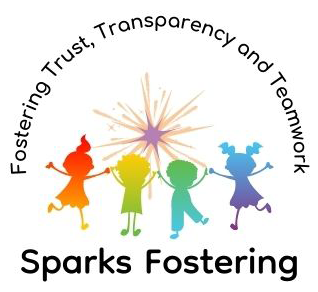Equality and Diversity
Introduction to equality and diversity
Diversity is recognising that people have different needs; particularly in terms of ethnicity, religion, gender, sexuality or disability. In practice, everyone is unique and so in order to meet an individual’s needs, we would need to speak with each person in depth and ensure that their views are respected.
Equality means that we want everyone to have equal access to services. This doesn’t mean that everyone is treated the same way – it means that we consider everyone’s individual needs and adjust our service to try to meet the specific needs of our service users (including staff, foster carers, children and partnership agencies).

Equality for children and young people in care
The children who we care for are as diverse as the population. Children in care come from all ethnicities, religions, cultures, identities and abilities. People of minority groups face certain challenges in their life, often including discriminatory and bullying behaviour. For children in care, the risk of distress and discrimination are amplified by the trauma of leaving their birth families and the stigma of being in care. It would be unacceptable for foster carers to behave in any way which would lead to the children feeling that their identity is not respected.
Foster carers and staff are expected to work together to formulate plans for children in care and carry out work which honours the children’s identity needs. Sparks Fostering expects foster carers (and staff) to work towards building strong attachments with children, leading to children feeling heard and valued – children’s views should be central to any plans made on their behalf. The children’s particular identity needs are to be attended to and respected. This may mean that the foster carers and staff would need to seek out appropriate expertise and training – Sparks Fostering provides support for this process.
Sparks Fostering will do everything that is possible to meet specific needs of the children in our care. This includes producing literature in different languages if needed, supporting foster carers to make adjustments to their home and commissioning specialist training for foster carers who are willing and able to become specialist carers.
That said, it is understood that some foster carers are better suited to meet the needs of particular children and we would aim to match children and foster carers as far as possible; for example, most foster carers aren’t able to care for children with complex disabilities so they wouldn’t be matched with children who have higher level of need in this respect.
Equality for foster carers
Meeting the needs of children in our care is central to the work of Sparks Fostering. In order to do that, the agency works to recruit foster carers who share the identity needs of the children in our care. This means that we would aim to have a similar range of ethnicities, religions, and identities between our foster carers as there are between the children in our care.
It is also a responsibility of the agency to ensure that the views and identity of the applicants don’t conflict with the needs of children in our care; for example, if an applicant refuses to foster children who express a sexual identity other than heterosexual, Sparks Fostering wouldn’t be able to progress the application because the views are discriminatory and harmful to children in care.
Sometimes applicants are concerned that they don’t have enough knowledge to meet the child’s identity needs; however, Sparks Fostering offers reassurance, training and support, so that foster carers can build up their knowledge and confidence.

Equality for staff
In order to apply equality and diversity in fostering, we are careful about what we ask staff at the point of application for the role – we don’t ask about things like ethnicity, religion or sexuality as part of the application process, because none of these factors impact on how well someone could do the job. That said, we will try to recruit staff who represent the children in our care to the best of our abilities.
Within the workplace we expect all staff to be respectful of diversity and expression of any discriminatory views will result in disciplinary action.
Religious identity of children
Whenever possible, children will be matched to homes of the same religious identity. Even when this is successful, consideration needs to be given to the views and identity of the birth family, the views of the child (which may not be the same as those of the birth family) and other differences (such as sectarian differences).
Fostering families should try to teach the child about the religion of their birth family (either directly or via a service); however, children will never be forced to learn about or attend a place of worship against the child’s wishes. When a child does not want to learn about the faith of their birth family, this will be recorded clearly. Attempts to encourage the child to learn about their religious heritage will also be recorded clearly and information should be shared with the birth family (via the child’s social worker) whenever this is possible.
When children wish to learn about a religion, the foster carer and social workers will find appropriate resources and/or local support. All information provided to the child must be vetted to ensure that it aligns with social work values. Any teachers or others involved in teaching the child/ren should be appropriately vetted – including DBS checks and safeguarding training via the services which employ the staff. If checks and safeguarding procedures aren’t robust enough (but there are no evident concerns), the foster carer may be required to stay with the child during interventions.
Ethnic Origins of children
The majority of children in foster carer (in England) are White British, as are the majority of foster carers. When children of different ethnic heritage need foster care, attempts are made to match the children to foster carers of the same ethnic heritage; however, due to the shortage of foster carers, this is not always possible.
Children of ethnic minority heritage arguably have higher level of identity needs than those of White British heritage because England is predominantly a White British community and culture. This means that White British carers who are caring for children of minority ethnic heritage are expected to make reasonable attempts to link the child/ren to people who are of similar ethnic heritage and the child should be supported to learn about their culture.
The senior managers of Sparks Fostering are of Asian, Black and White heritage, which means that the agency is well placed to meet the diverse needs of children of different ethnic backgrounds.
Staff and foster carers are asked to be mindful of the difference between ethnic heritage, ethnicity and nationality; for example, the Director of Sparks Fostering is of Indian ethnic origin, is of British nationality and identifies as dual British/Indian ethnicity.
Furthermore, cultural identity is also unique to individual’s experiences – some families of non-British ethnic heritage fully embrace British cultures, traditions and lifestyles. Other families hold on strongly to the culture of their ethnic heritage. Neither approach is better or worse, what is important is that the individuals and families have strong positive values.
With regards to languages spoken in the home, Sparks Fostering foster carers are all required to have strong English spoken and written skills – this is so that training and paperwork can be completed efficiently. Foster carers are also expected to be open to support children in their care to learn to speak English fluently – this may mean that English is to be spoken in the home even if the family and child share a common second language (depending on the needs of the child). Foster carers, members of the fostering household and the fostering networks should only speak English in the presence of a child who only speaks and understands English.
Disability
‘Disability’ is a broad term and can encompass physical disability, emotional disability or mental disabilities. The term ‘disability’ is questioned because for many people their different needs wouldn’t be a hindrance if society adapted better to meet their needs (for example ramps for wheelchair users). In fostering, when a child is considered to have a disability, it would be because they have a relatively high level of need; children with a lower level of need would be considered to have ‘additional needs’.
All foster carers are expected to care for children with a moderate level of emotional and/or mental health needs because the very nature of placing a child into the home of strangers can be unsettling and upsetting for the child; the child may have suffered trauma before moving to the fostering home; and life can be emotionally challenging for any child. Foster carers must be motivated to support a child through any emotional or mental health challenges.
Foster carers would only be expected to care for children who have a level of need which could be supported by the foster carers. Children with complex disabilities would only be placed with foster carers who have knowledge and experience of meeting the child’s needs. Foster carers must attend any additional training that is available to help them to meet the needs of the children and also work very closely with specialist professionals. The recordings of specialist carers must also be of a high standard. Sparks Fostering can support foster carers to acquire all of the skills and knowledge required to support the children.
gender and sexual identity of children
Sparks Fostering aims to match foster carers with children of the same birth sex and gender identity whenever possible, so that the child can have appropriate role modelling and also so that there can be sensitivity to the needs of the child.
Children benefit from advice and support from adults of the same gender identity, particularly when going through puberty and any time that there are questions about their sex or gender. Foster carers are supported by Sparks Fostering to offer appropriate advice to the child, regardless of the gender of the foster carer or the child.
Foster carers are expected to respect children’s privacy and show sensitivity when discussing topics that the child may find embarrassing or uncomfortable to talk about. Children who are able to bathe and get changed themselves should have the privacy to do so. If a child expresses a preference to discuss a topic with someone of a particular gender, this should be respected whenever possible.
Some children are born a particular sex, then start exploring their gender identity over time. When this is the case, the Sparks Fostering social worker will discuss the child’s needs with the child’s social worker and together they will agree a plan of support. The child should never be made to feel insecure or embarrassed about their experiences or identity.
Sparks Fostering carers are expected to have a reasonable level of understanding about gender and sexual orientation. Foster carers must not be derogatory or judgemental of children who express gender or sexual identities that are different to those of the foster carer. Indeed, foster carers must be sensitive to social stigma and discrimination faced by everyone who is part of a minority group – this is particularly challenging for children in care who may also face stigma and discrimination due to their care status.
Foster carers should also be mindful that gender and sexual identity can change throughout a person’s life course, so a child may explore (or change) their gender or sexual identity after they have joined the fostering homes. Foster carers who have limited knowledge about these subjects would be expected to carry out some additional reading on the topic, and work with professionals who can support the foster carers to offer the best possible care to the children.
Foster carers are also required to be mindful that while gender identity may be expressed outwardly from a young age, sexual identity and sexual behaviour should not be expressed openly in the home (regardless of the child’s sexual identity). A child who is displaying overt and highly sexualised behaviour would need specific support to explore why the child feels this is appropriate and to help the child to understand and behave according to social norms.
Additional resources (optional)
Making the invisible, visible – improving the approach to equality, diversity in safeguarding reviews for adults and children (presentation by Social Work England)
Additional needs
Seeing beyond disability: a co-produced teaching session exploring the social and medical model of disability in anti-discriminatory practice (a presentation by Social Work England)
Supporting d/Deaf children – putting the child at the centre of decision making – a blog by the NSPCC.
Ethnicity and religion
Anti-racism training course by the NSPCC.
Black History Month Free Lesson: Rosa Parks. By ‘Teaching Positive Connections’
Books and resources to keep kids understand racism
Director’s Blog: Racism in social work pushed me to set up a fostering agency
Director’s Blog: Supporting foster carers who have faced discrimination from their fostering provider
Double discrimination – Barnado’s calls for change as report highlights Black people who have been in care experience racism, exclusion and isolation.
Effective Personal and Professional Judgement (training)
How to talk to your children about race and racism
Identity needs of minoritised children and young people in care – Podcase with Coventry University researchers
Race, religion and representation among care-experienced children – Report of research carried out by Coventry University
Safeguarding children who come from Black, Asian and minoritised ethnic communities (NSPCC)
‘Take it seriously’: Children’s experiences of racism within secondary schools.
LGBT+
Allsorts Youth Project listens to, connects and supports children and young people under 26 who are lesbian, gay, bisexual, trans or exploring their orientation and/or gender identity (LGBT+) and their families.
The Barnados Positive Identity service provides support to children, young people, families and professionals around sexuality and gender identity. They also have a project called ‘Gender Space’, which supports children and young people who identify as trans or are gender questioning.
The Cass Review was commissioned by NHS England to improve NHS gender identity services.
Mermaids has been supporting trans, non-binary and gender-diverse children, young people and their families since 1995.
New Family Social supports LGBTQ+ adoptive and foster families.







